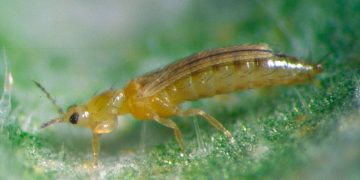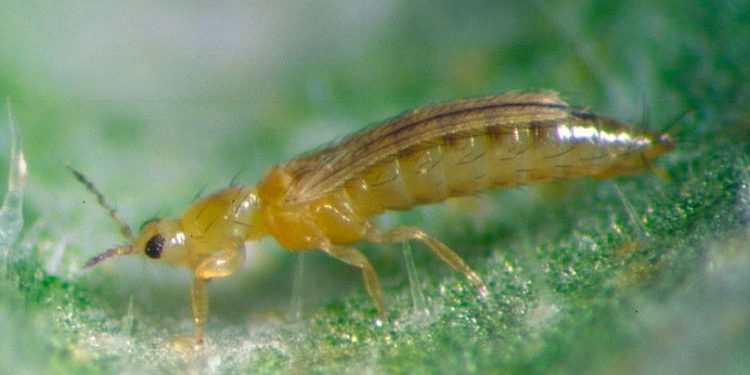#SustainableAgriculture #CropProtection #BiologicalControl #GeneticModification #ThripsControl
Thrips tabaci, commonly known as onion thrips, is a tiny, winged insect that causes extensive damage to crops. They feed on the sap of plants, causing leaves to wilt, curl, and turn yellow, ultimately leading to stunted growth and reduced crop yields.
The development of Thrips tabaci has been a major concern for farmers worldwide. They have the potential to cause severe economic losses and create food shortages. The use of pesticides has been the primary approach to control these pests. However, this method has been known to cause environmental and health concerns.
To combat the negative impacts of Thrips tabaci, research has been ongoing to find new, innovative ways to control their populations. One promising technique involves the use of biological control agents such as predatory mites and parasitoid wasps, which can help reduce thrips populations while minimizing the use of harmful chemicals.
Another approach is the use of genetic modification to create crops that are resistant to thrips. Scientists have identified specific genes that, when introduced into crops, can improve their resistance to thrips. This has the potential to create crops that require less pesticide use, reducing the environmental impact of farming.
Overall, the development of new methods to control Thrips tabaci is essential to ensure sustainable agriculture and prevent crop losses. The use of biological control agents and genetic modification can provide a more environmentally friendly and effective means of control. With continued research and innovation, we can hope to minimize the damage caused by these pesky insects and protect our crops for generations to come.































